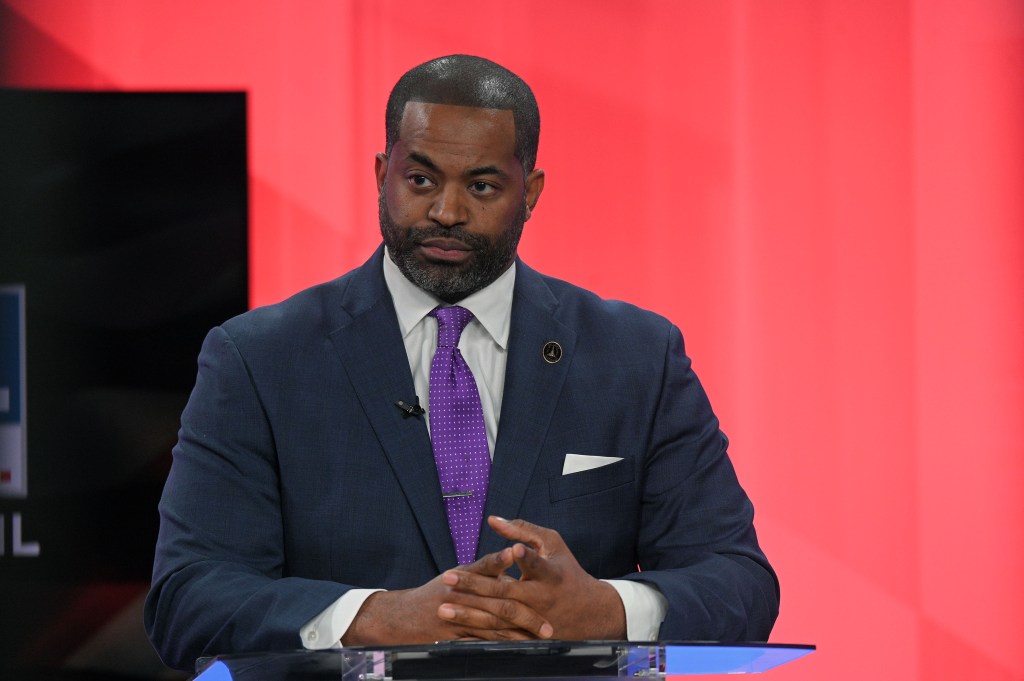
Baltimoreans will vote Nov. 5 on whether to create a city fund that would use state money to compensate communities whose residents were disproportionately targeted for arrest or prosecution under Maryland’s anti-cannabis laws.
The charter amendment, known as Question G, would create a city fund to recompense communities that suffered disproportionately under anti-cannabis policies before the state legalized recreational use last year. The issue is likely to pass; voters have only rejected one ballot question in 20 years, and the council passed legislation creating the fund earlier this year with almost no opposition.
Maryland levies a 9% tax on recreational marijuana sales, 35% of which are set aside for the Community Repair and Reinvestment Fund, from which Baltimore would pull the money. Baltimore is set to get the largest portion of the fund, which lasts until June 30, 2033. The state Office of Social Equity calculates funds based on the total number of cannabis possession charges in the jurisdiction compared to the total number of statewide cannabis possession charges between July 1, 2002, and Jan. 1, 2023.
Baltimore made up 30% of all possession prosecutions in Maryland during that time, according to state data. After the state decriminalized marijuana in 2014, Baltimore authorities continued to disproportionately target Black people according to analyses from the Baltimore Fishbowl website and the office of former State’s Attorney Marilyn Mosby. Ninety-six percent of the 1,514 people, including 66 children, arrested for possessing cannabis between 2015 and 2017 were Black, while 94% of people who received police citations between 2015 and 2019 were Black.
Local jurisdictions must pass legislation establishing how they will use the money before they receive their portion of the statewide fund. Baltimore is in the middle of appointing members to a commission to oversee those funds. The state law defines “disproportionately-impacted communities” as geographic areas with more than 150% of the state’s 10-year average for cannabis possession charges. It does not limit potential recipients based on race.
The City Council, led by Council President Nick Mosby, passed legislation last year creating a 17-member independent commission to oversee the city fund, which Mayor Brandon Scott signed into law that August. Mosby, Scott, Comptroller Bill Henry, and each of the 14 council members are in the midst of selecting people to serve on the commission. Five members from Districts 2, 5, 8, 9 and 10 will receive a hearing Thursday with the rules and oversight committee, according to the council’s agenda.
The council passed a bill creating the fund in May. Scott gave it his seal of approval in July despite initial opposition from Chief Equity Officer Dana Moore.
Moore argued in a memo that the fund could leave Baltimore on the hook for payments even after the state fund dries up in 2033. She said the city should consider alternatives like the Equity Assistance Fund, which funds programs to correct inequities in areas like housing and education.
Both Mosby and Dayvon Love, a policy expert who helped guide the Cannabis Reform Act, which created the statewide fund, disputed this. Love is the director of public policy for the think tank Leaders of a Beautiful Struggle.
“The legislation doesn’t require the city to give any money to the fund,” Love said. While the city doesn’t know how much money it stands to gain, “the (recreational marijuana) industry has done well despite being a year old,” he said.
Mosby said his legislation created a “lock box” mechanism to ensure the state money would be earmarked for a specific purpose to avoid comingling with the city’s general fund and ensure targeted communities actually received the money.
The state fund has netted $21.3 million from sales tax alone in the first year of legalized recreational cannabis, according to reports from State Comptroller Brooke Lierman’s office. That number does not include money generated from fees that medical dispensaries must pay when covering their licenses to sell recreational retail marijuana.
Whatever the amount Baltimore receives, Mosby expects it to be a “significant amount” of money.
“This is an important step for the city to take, to ensure communities disproportionately affected by the war on drugs receive” some degree of recognition, he said.
Question G, known as the Community Reinvestment and Reparations Fund, reads: “For the purpose establishing a continuing, non-lapsing Community Reinvestment and Reparations Fund, to be used exclusively to support the work of the Community Reinvestment and Reparations Commission to the extent that the work of the commission is within the scope of the use limitations in § 1-322 (‘Community Reinvestment and Repair’) of the State Alcoholic Beverage and Cannabis Article. The Mayor and City Council are authorized, by ordinance, to provide for the oversight, governance, and administration of the Fund.”
Election Day is Nov. 5.
Baltimore Sun reporter Dan Belson contributed to this article. Got a news tip? Contact Lia Russell at lrussell@baltsun.com, (667) 334-9198 and on X as @LiaOffLeash.


